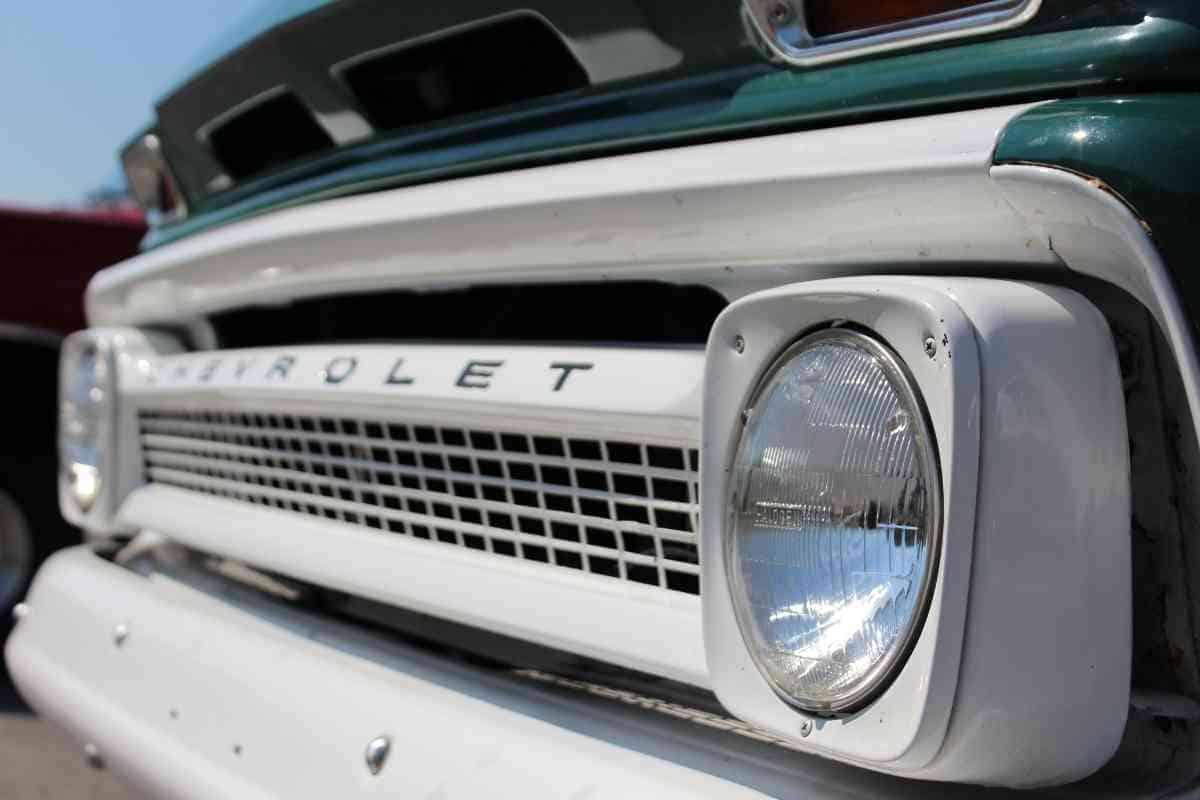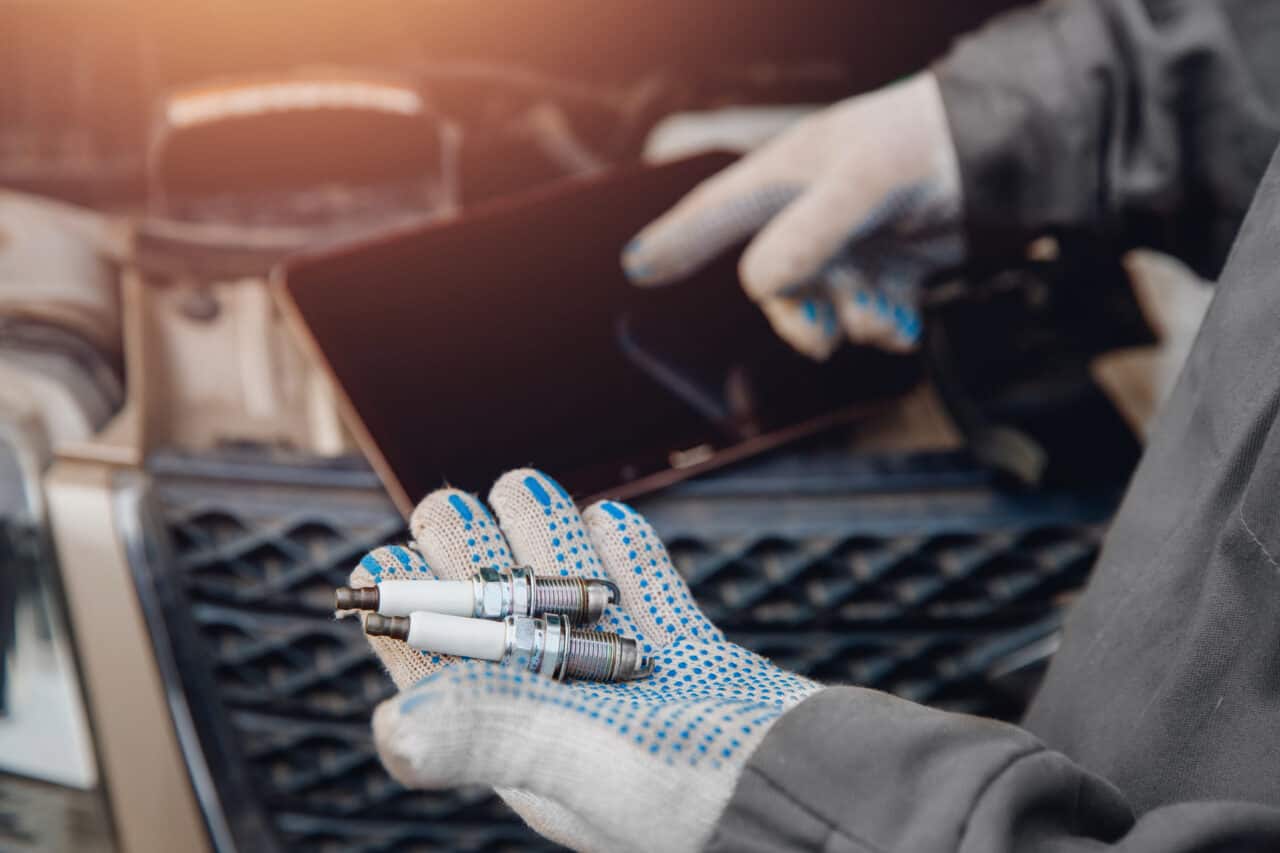Chevy Truck Jerks When Accelerating (3 Easy Checks!)
If your Chevy truck jerks when accelerating, you should definitely check it out. Our article “Chevy Truck Jerks When Accelerating (Here’s what to look for)”, identifies key causes and solutions to this common issue, ensuring a smoother driving experience.
Jerking while accelerating is more than unpleasant, it could indicate a more serious problem with your truck. Finding the issue early could save you a lot of headaches.

Jerking during acceleration in a Chevy Truck is usually caused by an incorrect mixture of fuel and air. This incorrect mixture could be due to a failing mass airflow sensor, an engine vacuum leak, or a malfunction in the fuel pump.
Before replacing anything, run a diagnostics test on your truck.
What is causing your truck to jerk? Read below to determine what parts are malfunctioning in your Chevy.
Diagnostics Test If Chevy Truck Jerks When Accelerating
If your Chevy truck jerks during acceleration, your check engine light may be on already. If so, the first thing you should do is run a diagnostics test.
If you don’t have a diagnostics test kit, most auto shops or car part dealers will test your car for you at no charge.
This test may return helpful results that can help you avoid troubleshooting on your own. The diagnostic test will bring up a code that identifies an issue that your vehicle is having and you’ll have a better chance of narrowing down which parts to replace.
Below you will find several possible issues if your Chevy Truck jerks when accelerating.
Failing Mass Airflow Sensor
A mass airflow sensor (MAF) ensures that the correct mixture of air and fuel is going to the engine. If your Chevy truck jerks when accelerating, there’s a good chance this sensor is failing.
A vehicle needs a specific ratio of fuel and air and if it doesn’t get the right mixture, it will have many problems starting and running. If it’s difficult to start your engine or if it doesn’t run smoothly, this might be something to check and potentially replace.
How to test your MAF if your Chevy truck jerks when accelerating
To test your MAF, you will need a diagnostics test kit. It will show how much air your sensor is allowing into the engine at a time. Allow your truck to get warm before checking your MAF.
What you should see if your MAF is working properly is a change in air intake as you rev to increase RPMs. If it doesn’t change with the RPMs or is slow to respond, your sensor may be out and needs to be replaced.
Engine Vacuum Leak
An engine uses a vacuum to create a difference in pressure from the Earth’s atmosphere. This is how the engine can create the power to move the vehicle.
If there is a leak in the engine vacuum, it will not work properly. If too much pressure escapes, then the air pressure of the atmosphere and the engine become too similar and the engine can’t produce power.
If your truck is struggling with acceleration from an idle, you may need to check for an engine vacuum leak. Sometimes an engine vacuum leak will still allow you to run smoothly at higher RPMs, but when idling or accelerating from a stop, you could have issues.
Some other symptoms of an engine vacuum leak are:
- Check engine light
- Rough idle
- Stalling
- Hissing sound
- Unstable RPMs at an idle
- Surges
- Engine stalls when stopping
- Misfires
- Difficulty accelerating

With an engine vacuum leak, you will have difficulty accelerating at idle or lower speeds, your RPMs will be unsteady. If your vehicle has a severe engine vacuum leak, your truck may not start at all.
Because a difference in pressure is needed, your engine can’t do much when there is a severe leak.
Engine vacuum leak test
After running a diagnostic test that returned an issue with random misfiring, check for a leak. Looking for a leak is typically an easy thing to do.
With an engine, the escaping material is in the form of gas, so you won’t see any drips, but you can still detect the leak pretty easily with soapy water. Isolate and pressurize the system or piping and rub the exterior with soapy water.
Any leaks will cause the soap to bubble up. Take special care to check fittings, threaded areas, or other areas where a leak might occur more easily.
Fuel Pump Malfunction
The fuel pump does exactly that, pumps fuel. It takes gas from the gas tank and sends it to your engine so your truck can start. A fuel pump is crucial and without one you won’t get very far at all.
Because a fuel pump’s job is to ensure that the engine has fuel, a bad fuel pump will cause your truck to respond as if it’s running out of fuel. You will have trouble accelerating, feeling the jerky movement, but in addition to that you may also experience the following symptoms:
Noise from the fuel tank (a whining sound), difficulty starting your truck, a sputtering engine, stalling, power loss, surges, decreased fuel economy.
Since the fuel pump ensures the engine is getting enough fuel, a bad pump can cause a lot of issues with how your truck runs. If your fuel pump is entirely gone, your truck won’t even start. Often it will crank, but not start.
It’s important to note that a bad fuel pump can feel a lot like a bad catalytic converter. The catalytic converter will not feel as jerky as a fuel pump issue, but it’s good to get a test to determine the actual issue.
Test the Fuel Pump if your Chevy truck jerks when accelerating
Once you have run a diagnostics test that detects that fuel rail or system pressure is low you test your fuel pump with a fuel pressure test kit. This will tell you exactly what your fuel pressure is.
Most cars have a port for this tool to hook up to, but some don’t, so make sure you check your specific truck model before purchasing one.
Closing Thoughts on Why Your Chevy Truck Jerks When Accelerating
Once you’ve found the issue, you should be able to replace the malfunctioning part and your check engine light should reset itself in a few days. If you are still experiencing trouble, you might want to look for other potential issues.
Restart your troubleshooting with the suggestions above, but it may be more simple than you think.
Some Chevy trucks have a spare tire beneath them that can cause noise and jerking if too loose. While most don’t have an issue with this, it’s been reported and it’s a good idea to check.
In the end, if your Chevy truck jerks when accelerating, you should definitely have it checked out, be it on your own, or with a mechanic. These tips can help you diagnose what’s wrong with it, and short the issues out quicker.
